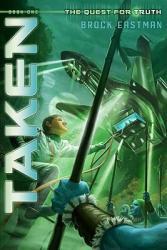Fiction
Nonfiction
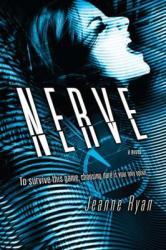
Nerve is about a coward named Vee who decides to try this game online called NERVE. In this mysterious game, you can either be a player or a watcher.
Watchers must pay money to watch, and players get paid to do dares. Vee thinks this is a stupid idea, but then begins to wonder if it actually a fun thing to do. She decides to try it out. One challenge leads to another, and the dares begin to become deadly. Should Vee risk her life for a good prize, or will she lose NERVE?
This is a great book for anyone obsessed with online games, or thrills in general. I definitely recommend this book for any thrill seekers.

Alex, Approximately is written about a young girl by the name of Bailey Rydell, who has left her past life behind to start a new one with her dad.
Bailey, otherwise known as "Mink", has left her mom and step father from Washington D.C. to live with her father in a small town in California. Her father knows about her geeky online crush, Alex, who supposedly lives in the same surfing town as Baylie. As Baylie starts her new job, a hot security guard by the name of Porter Roth irritates her, until it suddenly begins to seem cute. Should Baylie hold on to her fantasy with Alex, or try with Porter?
I think this book is completely underrated. It's an incredible book. and deserves more attention. Definitely recommend it for casual reading.
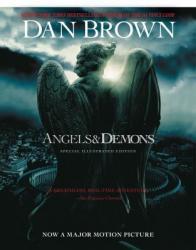
While Angels and Demons is not nearly as popular as its sequel, the famous (if not infamous) The Da Vinci Code, the elements which led to its successor’s success are certainly all contained within this first book in the Robert Langdon series. Of course, just because you have the materials to build a nice house doesn’t mean that it magically becomes a mansion. Despite containing many of the elements that made The Da Vinci Code so good, Angels and Demons feels a little underdeveloped in quite a few areas.
First, the protagonist, Robert Langdon, is supposed to feel like an “Indiana Jones”-type character, but with a specialty like symbology as his background, I just can’t buy the action-hero transformation of this everyday academic. Add to this the almost repetitive nature of his “discoveries” wherein he makes an assessment, then goes to the location of the assessment only to find that he didn’t think of it in the right way and thus requiring the whole plot to shift gears as he rushes to the new location. He eventually had better predictions, but by then it felt repetitive.
Secondly, the whole “treasure hunt” to find the antimatter (of which I feel CERN is a more recognizable name than it was back in 2000) seemed to take a back burner to the parallel plot of the pope’s death and finding his replacement. It is hard to focus on both plotlines, especially since both of them had pretty predictable endings. Finally, the romance aspect of this novel seemed quite forced, even to the point where the final scene of the book felt like it was ripped out of a James Bond story. Wherein a modicum of charm from the male protagonist makes his female counterpart swoon with undying affection that wasn’t in any part of the prior plot.
A rough start to the Robert Langdon series, I give Angels and Demons 2.5 stars out of 5.
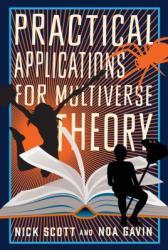
As someone who enjoys learning about the many interesting unknowns in our universe, the mere title of Practical Applications for Multiverse Theory (2016) caught my attention from the get-go. The ideas of parallel universes coexisting in an invisible space next to our own is something I eventually want to cover in my own writing (tentatively titled The Slumberealm Saga). And while this book somewhat delivered on the premise of its title, it unfortunately did so through an incredible plethora of clichés. Due to the authors’ background in improv comedy, it’s clear that they merely wrote this book to capitalize on the style’s random nature.
I’m not sure who the target audience for this book might be, since the main characters are high school students who use an awful lot of foul language. I would think it’s aimed at being a Young Adult (YA) comedy, but most of the laughs seem forced and trite. Told from two different perspectives, Scott and Davey, both characters aren’t really that likeable, and neither of them change that much (if at all) by the end of the book. In fact, it’s almost obnoxious how Davey is essentially a jerk to everyone, especially Scott, even though it becomes incredibly clear she should be more accepting of him earlier on in the plot.
Speaking of plot, it seems to drag in quite a few places, especially in the beginning as both characters start noticing the multiverse collapsing in on their school. Unfortunately, due to the aforementioned clichés, the entire rest of the plot was pretty predictable, even if the different universes were quite random (and even that randomness was cliché). Nosebleeds indicating a fracture in spacetime, narcissistic cheerleaders, nerdy loners. Everything fits nice and squarely into the formula for a YA book (despite the obscenities). The problem with this is that the authors clearly saw they were writing clichés, because there were a few points that could have been cliché (like the two main characters falling in love), but just weren’t there at the end, thus leaving the reader somewhat unfulfilled. If you’re going to follow a formula, it needs to be followed in its entirety.
An easy and fast read with nothing much to offer, I give Practical Applications for Multiverse Theory 2.0 stars out of 5.
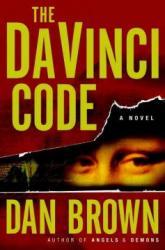
What a difference three years makes! Even though it contains all the same tropes and motifs that Angels and Demons did, The Da Vinci Code eliminates the fluff and focuses on the strengths of these individual pieces to create an enthralling adventure through Christian history. I will admit that I first read this book because I was curious about the controversy that surrounded it. While Dan Brown is a fantastic storyteller, and many of his connections and links to Christianity made sense, I still maintain that, at its core, The Da Vinci Code is just well-written fiction.
This time around, Robert Langdon is much better suited for the task of finding the “Holy Grail” instead of being a glorified Roman tour guide. His expertise in symbology certainly helped to drive the plot forward, even if it sometimes was in a misleading direction for the sake of a twist. I did appreciate how, even if a clue didn't immediately come into play, it became useful later to help round out the plot. It wasn’t just a series of “find me a rock” exercises but had a parallel set of intersecting strings and subplots that drove the story forward to its exciting conclusion.
And while the female protagonist was much more developed than the one in Angels and Demons, the villains also had more depth to them as well. Instead of a few individuals using the name of a huge organization like the Illuminati to create the conflict, a singular man with a singular goal helped to create the “chase” that propelled Robert Langdon across Christendom to find the Holy Grail. While both The Da Vinci Code and Angels and Demons share almost identical plot structures, the former shows that the execution of such a story is precisely what makes one a great read and the other an exercise in eye-rolling.
An exciting treasure hunt filled with fictional historical connections, I give The Da Vinci Code 4.0 stars out of 5.
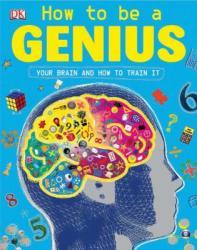
This incredible book tells you all about how your brain works, how you survive, and how you are the person that you are. Through very accessible graphics and clear descriptions, you learn so much! There are cool games, quizzes, puzzles, brain teasers, and more! Then put what you learn into practice to become a genius! Recommended for ages 10 and up.
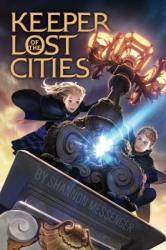
Great if you are the type that likes Fantasy. It is an easy book to get wrapped into and hard to pull away from. I highly recommend this book. It has an interesting plot that keeps you hanging and want to keep reading. Get the next books in the series too because this book makes you want to read more.
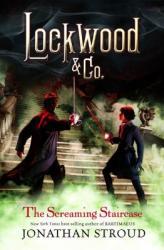
Fans of Bartimaeus will not be disappointed by Jonathan Stroud’s series, Lockwood & Co. The “Problem” started about 50 years ago in London. Ghosts became true, dangerous, and very real threats to the living. Only young people have the ability to “see” and eradicate these creatures of the night. Enter Lockwood & Co., a company of three who go out nightly to defend the city. Great adventure, ghost story, and humor interweave for perfect storytelling in The Screaming Staircase, the first in the series.

Dimple Shah is excited to head off to Insomnia Con - a summer camp/contest for coders looking to build a real world app. She's shocked when her traditional Indian parents agree to send her, even though the camp is kind of expensive, and it's not the sort of thing they'd usually let her do. Imagine her surprise when she finds out the reason her parents let her go - unbeknownst to Dimple, her parents have been arranging her marriage (sort of?) with their friends' progeny Rishi. Dimple, as a feminist and career woman, is NOT HAVING IT.
This was ADORABLE. It reminded me of a slightly younger, more diverse Sophie Kinsella book - the characters are well developed and likable (who am I kidding, LOVABLE), it was hilarious and light while still having a lot of heart. I don't know a ton about Indian American culture, so it was interesting to read a little bit more about the struggles of first generation Indian immigrants. The dialog between the characters seemed pretty realistic to me, and while everything is wrapped up pretty neatly...I mean, hey! It's a romcom. And a great one, at that.
If you are looking for an eminently readable romantic comedy to relax with this summer, look no further. This was fantastic. 5 stars - I loved it!
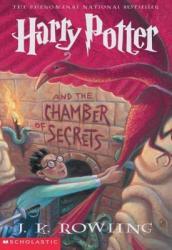
I believe that in this particular Harry Potter book you do not know what is going to happen next and you are full of suspense and Harry potter runs in to some very difficult problems and him and his friends, Ron and Hermione, have to resolve them by being clever, witty, and brave. It is so suspenseful and great that I did not want to set the book down. I hope that every one loves this book as much as I did.
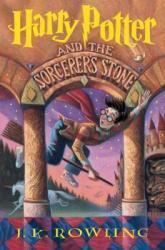
Harry Potter is an exciting twist of magic and book that no matter what you can not put down.
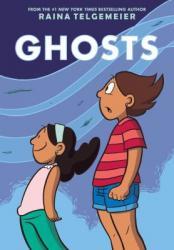
I really liked this book! I have read a few of Raina's books before, so I found this one and said why don't i try it!
This book is about a girl and her sister, and they have to move to a new city. At this town their are rumors about ghosts.These ghosts live at one special place in the town called, Bahia de la luna. Maya Cat's sister really wants to meet one,though Cat DOES NOT. One year every year the people of that town have a celebration. Remembering their loved one that died. All of the ghosts celebrate with the people. Those people are able to speak to their loved ones and catch on with their beloveds. Maya seeing that they celebrate this makes her think, maybe these ghosts aren't so bad.
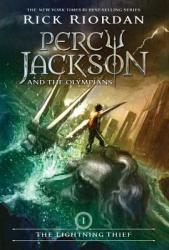
This book is awesome you have to check it out at your local library.
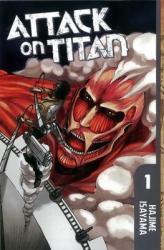
Ever since I discovered this series, I've been hooked. The story is just so interesting and unique. I mean, how many books do you read about man-eating giants destroying society and teenage soldiers fighting them. Not only is the plot interesting, the characters are very well developed and their backstories are very interesting. That being said, there aren't too many backstories, because most of them are dead, but still, the main characters' backstories are really creative and awesome. I have read these books so many times and I am still hooked, even though it sometimes makes me mad (because the characters I like all keep dying). 10/10. Highly recommend if you are okay with violence, blood, guts, and disturbing images.
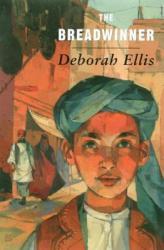
This book is very interesting because it talks about a girl who has always lived in the middle of a war in Afghanistan where all women and girls can't go outside unless the have a note from a male or a male accompanies them outside, well for this girl named Parvana her life changed when her father was arrested and the only other male in her family was her baby brother!!! Big problem huh??? Well the only solution her family found was for her to dress as a boy. Read about this amusing book called The Breadwinner.
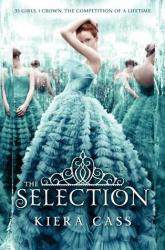
I'm an adult and I made the mistake of reading two teen dystopian romances in a row. I'm going to have to take some steel wool to my skin to get the angst off.
This book is okay. Teens that love dystopian romances will love it. To me it was vapid and reminiscent of a teen Bachelor. Once again, I'm not the target audience. It's probably unfair to the book for me to even review it. Oh well.
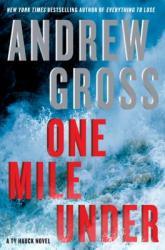
Review: The book, One Mile Under, is about a girl, who is a white water rafting guide living in Aspen, Colorado, who finds a body on one of her rafting trips. Throughout the book the girl, with some help from a few friends, tries to prove that the death of the man was no river accident while also trying to avoid being murdered herself. I chose this book because I though the title seemed interesting, and I had read some of the author's other books and liked them. The thing I liked most about this book is that it is a murder mystery, and it is very suspenseful throughout most of the book.
However, the book seemed to drag on a lot towards the end, and most of the answers to the mystery are revealed about two-thirds through the book which makes the book feel long. This book was surprising in the beginning, but by the end everything seemed pretty predictable. Overall, it was a really good book, and I would suggest reading it if you like suspenseful murder mysteries.
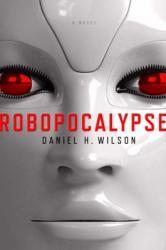
With the ever-increasing proliferation of “smart” technology throughout our society, the thought of a robot uprising remains fixed in the back of our minds. Since the introduction of the concept of robots decades ago, humans have feared their uprising to usurp us as the dominant sentient beings on our planet. Now, as we rely on our computers, smartphones, and connected devices to help run our lives, the threat of a full-on apocalypse resulting from their sentience seems more possible than ever.
Author Daniel H. Wilson has certainly done his research on the “what if” scenario of a robot apocalypse (or the titular Robopocalypse, if you will). He manages to build the progression of a robot-themed doomsday scenario from the machines we know and use today. Many of the machines’ decisions and strategic moves mostly make sense. That being said, I did have a few issues with the book and its structure. First off, the format of the book was remarkably similar to its zombie predecessor, World War Z. Secondly, the fact that it’s told through only a handful of characters helps to tie each piece together, but the fact that these characters are all connected to each other makes it less believable.
When it came right down to it, I had trouble connecting with these characters. In the earlier sections, it was a little easier to understand what was happening, but once the landscape of the robot war changed into one where the robots were winning; it was hard to grasp what was going on in a global sense. As it is, Robopocalypse is essentially a series of short stories with some familiar characters tying it together.
A semi-realistic look at a potential robot uprising with an already-used apocalyptic narrative format, I give Robopocalypse 3.0 stars out of 5.
For more reviews of books and movies like this, please visit www.benjamin-m-weilert.com
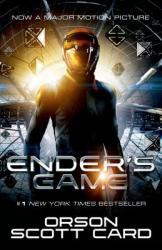
In another “lapse” of my reading habits, I didn’t manage to read Ender’s Game until the movie of the same name came out in 2013. At the time, all the sci-fi fans were eagerly anticipating a film that had taken over 25 years to finally become a reality. While I thought the movie was quite well done and engaging, after I read the book, I can understand why some of the diehard fans of the series were disappointed. As is usually the case with book-to-movie transitions, sub-plots often find themselves on the cutting room floor. Of course, I don’t blame them for cutting what they did; after all, it is called Ender’s Game.
Even though watching the movie first spoiled the exciting twist of the ending when I read the book, I almost read the book differently knowing how it would turn out. I could see the signs leading up to the shocking reveal, almost as if I had read it before. I did appreciate the sub-plot with Ender’s siblings and their efforts back on Earth as their brother was winning the war in space. If anything, it helped to break up the intense action surrounding the eponymous main character so that the reader could fully absorb what was happening in the universe on a political level as well as a military one.
It is disappointing that there will likely be no more movies in this series since the source material is full of interesting ideas that I’d like to see on the big screen. Perhaps the series would be better suited for a television show (a la Game of Thrones) to fully include all the different elements that made it a classic of sci-fi back in 1985. Either way, I look forward to exploring more of Orson Scott Card’s universe in the next book of the series: Speaker for the Dead.
A fantastic sci-fi story with an incredible twist ending, I give Ender’s Game 5.0 stars out of 5.





 Ruth Holley Library will be temporarily closed for approximately one week starting Mon., Dec. 2 to complete roof repairs.
Ruth Holley Library will be temporarily closed for approximately one week starting Mon., Dec. 2 to complete roof repairs.